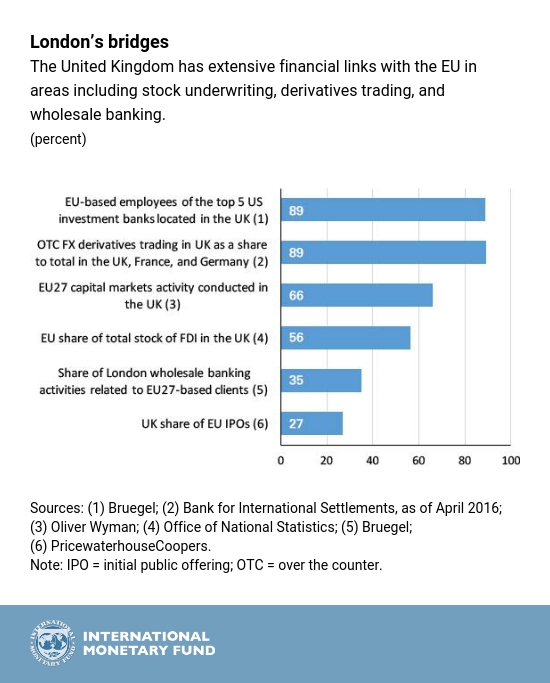May 29, 2017
It seems likely that Brexit will alter the relationship that UK-based financial firms have with the European Union—even though negotiations are just beginning.
For an idea of how much is at stake for the United Kingdom’s financial services industry, take a look at our Chart of the Week, drawn from the IMF’s latest Global Financial Stability Report. The chart illustrates the linkages that might be affected by the country’s withdrawal from the EU. One example: of the over-the-counter trading in foreign exchange derivatives in the United Kingdom, Germany and France, the UK share comes to 89 percent.
Currently, financial firms based in Britain have “passports” allowing them to do business in any of the other EU countries on the same terms as firms based in any of those countries.
That’s one reason why the UK is such an attractive headquarters for operations for international firms doing business in the EU.
These “passports” might lapse when Britain withdraws from the EU, so the country may have to negotiate an alternative for financial institutions to retain access to the EU. One possibility discussed often in the media are the so-called equivalency agreements applicable to different lines of business, such as insurance, asset management and banking. However, there remains large uncertainty about the feasibility and advantages of such agreements in the new post-Brexit context.
The transition to a post-Brexit world also needs to be carefully managed to minimize disruption in market services and activities, and maintain a sound and effective supervision of financial activities. Because operating costs may increase during the transition as banks may have to duplicate operations and relocate staff, many banks have begun to draw contingency plans and explore various relocation alternatives. Some institutions may even opt to exit or scale back specific business lines.



